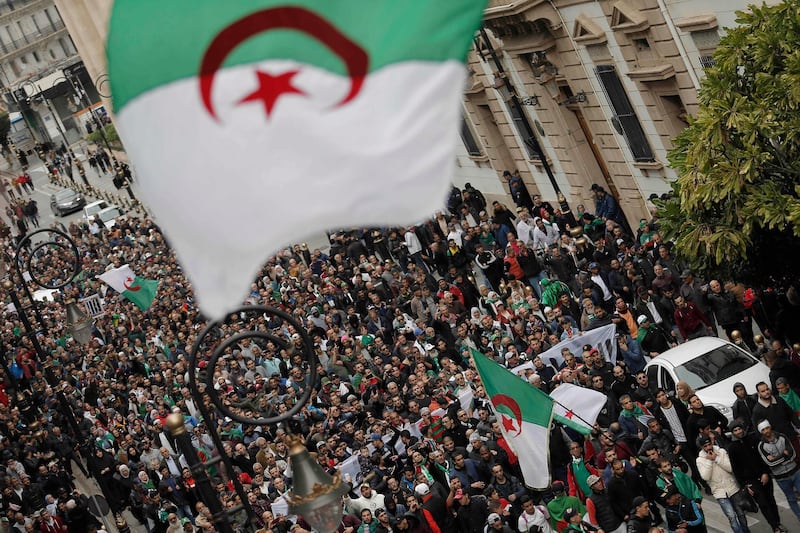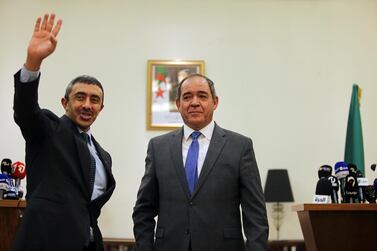Since February 16 last year, Algeria has been witnessing a quiet citizens’ movement, which will observe its first anniversary this week. Peaceful demonstrators have congregated in urban spaces every week for the past 12 months, comprising anything from a few hundred to hundreds of thousands of participants on Tuesdays and after Friday prayers. Crossing all generations and social divides, the demonstrations have shown no sign of stopping, even if overall numbers have fluctuated in recent times. However, with regional differences, and no notable rural support, cracks are beginning to show in the movement’s unified facade.
The most striking aspect of the Hirak – or the Revolution of Smiles – has been the absence of violence in its leaderless ranks, which is impressive given Algeria's history of a decade of internal conflict in the 1990s. Combined with restrained official policing, local protesters have rigorously blocked attempts to infiltrate their ranks. Three people have been reported to have lost their lives over the past year and, while that is three deaths too many, the number of casualties has been low – even as several thousand activists have been arrested on a variety of public order and insurrection charges since March.
The prevailing question, as in all loose-knit protest movements, is whether the Hirak has a viable future in its current form. At first, the demonstrators demanded the resignation of the then president Abdelaziz Bouteflika, whose declared candidacy for a fifth term in office sparked the first spontaneous demonstration in Kabylia to the east of the capital Algiers. Via social media links, protesters in other towns and cities – above all Algiers, Oran and Constantine – joined the call for Mr Bouteflika to stand down, culminating in mass rallies by March that secured his resignation in early April and the delay of presidential elections scheduled for that month until December.
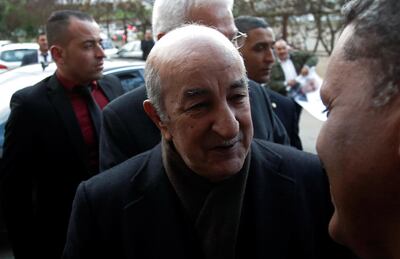
However, what looked like a victory for people power by the spring of 2019 was neither complete, nor did it fully reflect the political dynamics at play. The weekly protests continued after April to target the entirety of Algeria's political establishment, with increasingly vocal demands for a complete overhaul of the elite structure and constitution. Even with the recent election of Abdelmadjid Tebboune to the presidency – in polls largely boycotted by the protesters – it will take more than a top-level change of guard to alter the Hirak's objectives. The new president, himself a former prime minister who suffered at the hands of Mr Bouteflika's entourage, is no newcomer to the system under attack. But the stakes are high, above all in avoiding the risk of more direct conflicts now that political battle lines are being re-drawn this year.
A year ago, Algeria's political establishment – or Le Pouvoir, as the mix of military and civilian elites are popularly referred to – was split over how to engineer a discreet departure for the ailing Mr Bouteflika, who had rarely been seen in public since suffering a stroke in 2013. His younger brother, Said Bouteflika, was widely accused of abusing his position at his sibling's side to allow a corrupt network of oligarchs to challenge the vested interests of Algeria's military establishment. It thus suited the military, above all its most senior member – the army chief of staff Lt Gen Ahmed Gaid Salah – to listen to the street in early 2019 and remove both Bouteflika brothers from power.
In May, Gaid Salah authorised the arrests of Said Bouteflika and his closest associates, together with the two most recent heads of the DRS, Algeria's military intelligence service, the much feared Mohamed "Toufik" Mediene and his erstwhile deputy Athmane Tartag. All were charged with an attempted coup and sentenced to 15 years' imprisonment in the case of the main culprits – a sentence reconfirmed on appeal this week. Once again, this manoeuvre was presented as a response to popular demands for an end to high-level corruption and the abuses of power committed by the shadowy state-within-a-state of the intelligence services. Yet the protesters persisted in identifying Gaid Salah as a central plank of the establishment they sought to overhaul, leading to further arrests of the most outspoken critics of the presidential campaign being planned for December.
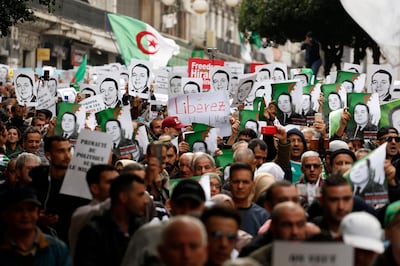
In the event, Mr Tebboune's electoral victory on December 12 seems to have opened the way to a more conciliatory approach to the protesters, as he put forward a road map for constitutional reform, promising legislative elections by the end of 2020, and set about liberating thousands of Hirak detainees. The sudden death of Gaid Salah on December 23 has also left room for changes in the military leadership, if not its overall direction.
Still, there remains a divide over what direction the country should take. Rural Algeria, which voted in greater numbers at the polls than the urban boycotters, now seems more ready to engage in the dialogue offered by the new presidency, influenced by the stability offered by the military. But for many in the Hirak, the proposed changes lack credibility while the main pillars of the establishment remain in place, including the military’s veto over decisions made by the president and the rest of the largely unreformed civilian political establishment.
Absent a political platform of its own, the Hirak risks being overtaken or divided by the initiatives of others. A coalition of established opposition parties under the umbrella of a Democratic Alternative Pact claims to be championing the street in setting out its own demands for constitutional reforms within a process of dialogue with the new president. Others warn that the focus of engagement should be on the mechanisms needed to enforce existing laws and the constitution rather than on declarations with no practical impact.
Still missing is an agreed process by which the next steps are shaped, including discussions over the elephant in the room: the economy. In a state that still derives 95 per cent of its foreign earnings from oil and gas exports, competition over state-dominated receipts has always divided the Algerian establishment, even at times when high levels of public spending were unleashed to pre-empt the risk of popular protests a decade ago.
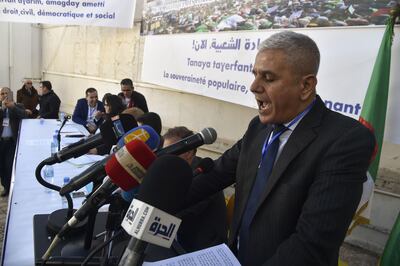
Now, with public expenditure outstripping financial reserves at an alarming rate – foreign currency reserves are predicted almost to halve from $62bn in 2019 to $34bn in 2021 – the size of the dividable cake is dwindling. For years, Algerians have evoked the need for a new social contract, but they have lacked the vision and leadership required to reform economic structures that have relied far too long on patronage rather than productive endeavour.
Demands for representation and a political system in which all Algerians have a stake might continue to be the rallying cry of the Hirak. But translating those demands into a viable economic model to underpin this aspiration requires the engagement of an entirely new set of actors, above all drawn from Algeria’s burgeoning start-up, social enterprise and new technology sectors that represent the present as well as a still-distant future.
For a society that has suffered so much within living memory from the deep mistrust of others as well as the state, the spontaneity and self-control of the Hirak protesters is a clear sign of lessons having been learnt about the real dangers of an overspill into violence. However, without a clear strategy for managing diversity and difference – and exploring new ways of turning protest into concrete propositions – the movement could still implode. Compromising over the detail of how to move forward, as well as initiating the process to do so, are now needed far more than slogans.
Dr Claire Spencer is the former head of the Middle East and North Africa Programme at Chatham House
